What isIceBox Challenge?
How are we going to build tomorrow?
The Ice Box Challenge is a global project and an innovative experiment that illustrates the effectiveness of environmentally friendly standards compared to traditional construction. Two mini-houses, equipped with one tonne of ice each, are placed outdoors through the summer heat to test and demonstrate the ability of environmentally friendly buildings to save the environment.
Which mini house wins?
At the end of a month of exposure to the summer sun, the insulated cans are opened to reveal the amount of ice that remains. The result? A tangible proof of the importance of energy efficiency and sustainable insulation in buildings. It’s science in action.
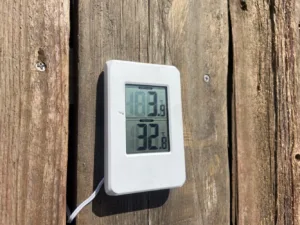

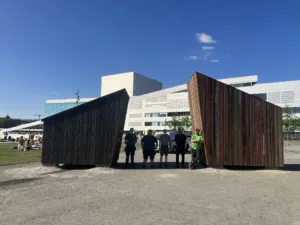
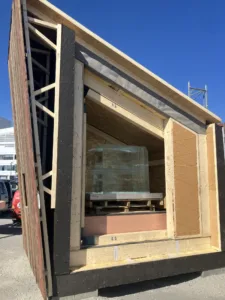
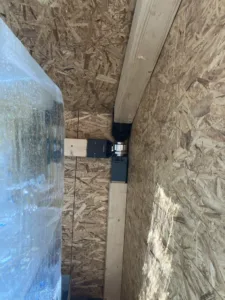
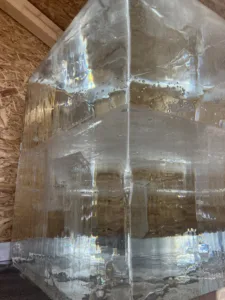
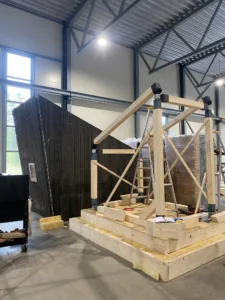
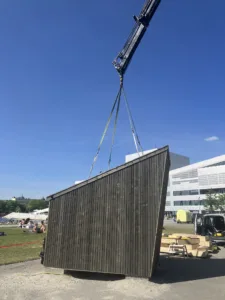
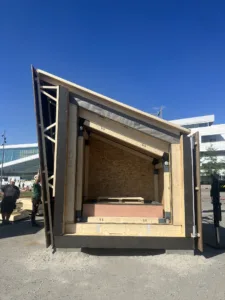
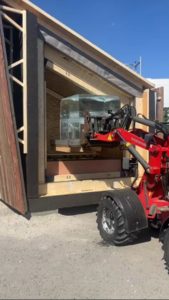
Global roots, Local conditions
Together for sustainability
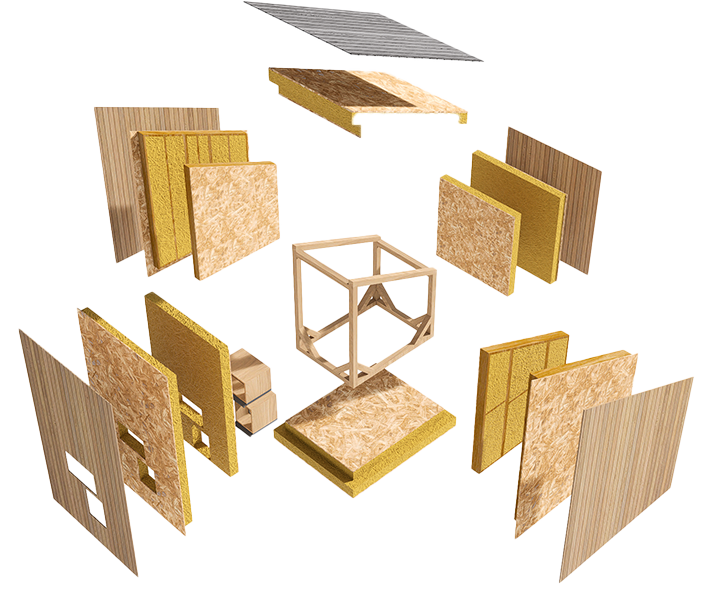
From architecture firm A2M’s roots in Brussels to its success in New York, and now in Oslo, the Ice Box Challenge has grown to become a voice for environmental responsibility and energy efficient building practices. With the support of public and private business and organizations, we bring the community together to learn, explore and commit to a more sustainable future.
Read more about A2M: Icebox Challenge OSLO| NOR (a2m.be)
After 18th IceBox Challenges, the next frontier is to work with Produktif, the Norwegian design and technology firm to replicate this success with 100% reusable construction elements.
Read more about Produktif: Ice Box Challenge – Oslo, June 2024 – Produktif Norway AS
Can we regenerate the environment?
Everything starts with building to the Passive House standard. This construction method allows energy savings of up to 90% in heating demand. Next, we integrate a construction system that allows the elements to be assembled and disassembled as many times as desired. This is the concept of DFAD® (Design for Assembly and Disassembly) from Produktif. This modular and circular construction method addresses resource depletion and increases the lifespan of buildings. Additionally, with water management and greenery strategies, the use of low-carbon impact and reused materials, and the implementation of renewable energy, we gradually achieve decarbonized buildings. It thus becomes possible not only to limit the impact on the environmental but also to regenerate it. Achieving these new performance standards in the building industry demonstrates a new way of constructing in a world that has already changed and proves that a decarbonized future is possible.
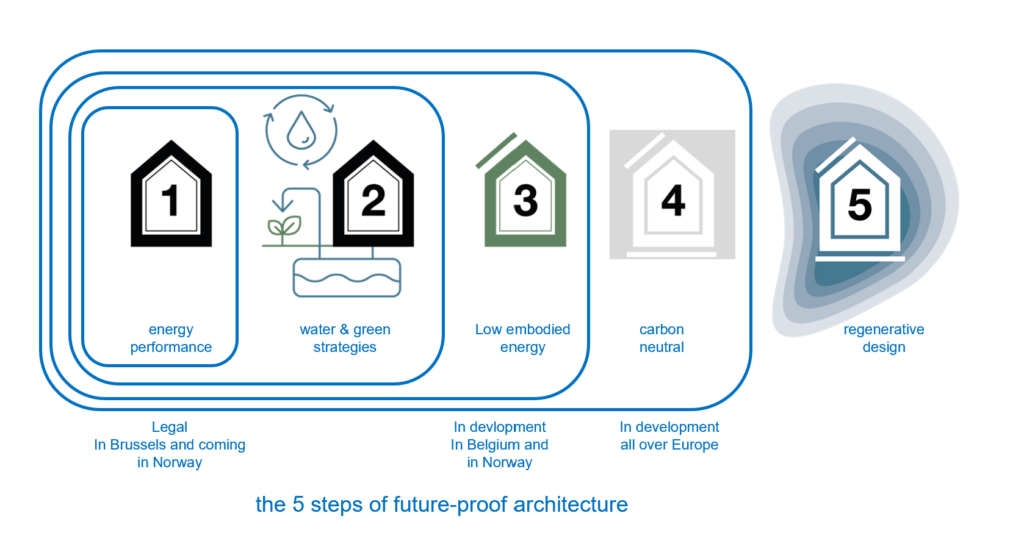
Mitigating climate change consequences!
The 1,5° from the Paris agreement is already surpassed and climate change is showing more and more extreme events worldwide. The challenge also came from this reality as the 2 mini houses were installed under a record 34°C on the 16th of May in Oslo. The temperature was still above 30°C three days after having installed the ice blocks inside the houses.
Can you imagine that since then there were only until 5°C less inside the traditional house compared to 30°C less in the passive one? If we fail preventing climate change, let’s succeed in mitigating its consequences.
Reused wood cladding
The boxes will also reuse cladding sponsored by Omtre. Old barn timber has this timeless charm and robust performance. Sourced from abandoned barns, this material not only offers an eco-friendly solution but also adds a distinct character to any space, blending history with modern design.
Read more about Omtre: Home | Omtre – EN
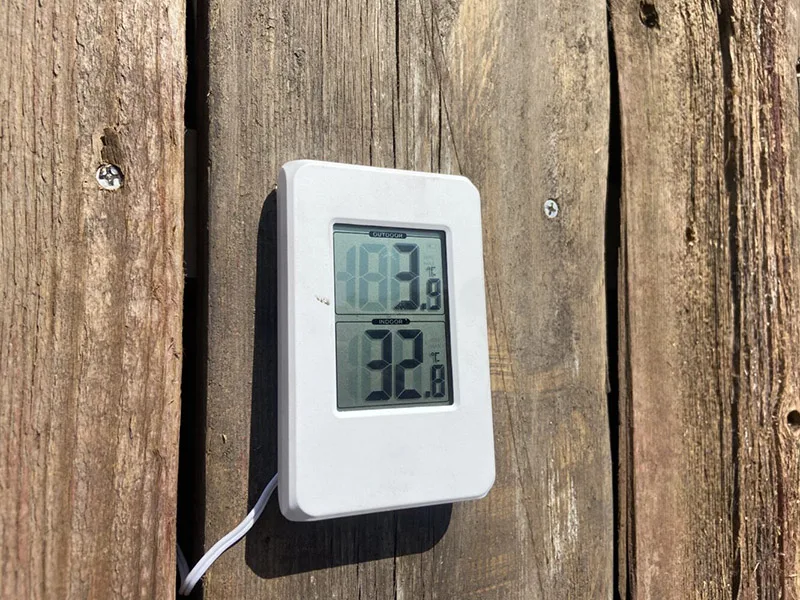
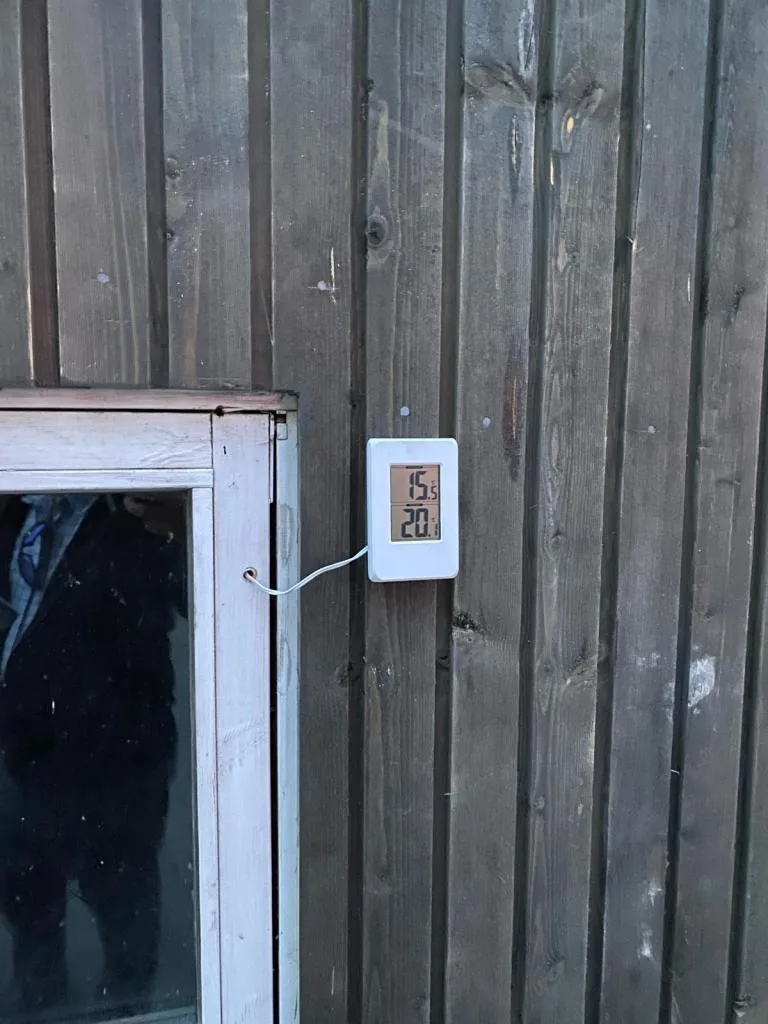
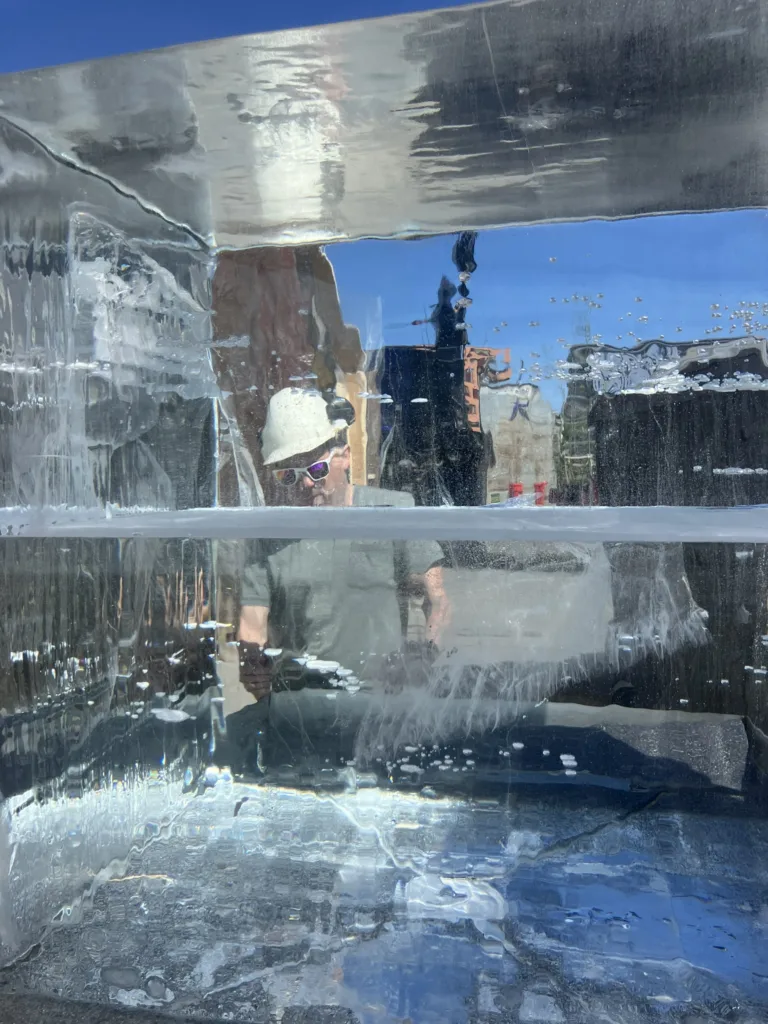
Ice from the north
Using 2 blocks of one ton of ice is not happening every day. When it comes to the challenge, and to demonstrate the need for consuming less energy, the exercise is not so easy. In northern countries such as Norway, we are not so far from the ice, and guess what? The 2 blocks will come from a lake owing to the specialized company DesignIce, thus consuming less energy than frozen blocks.
Read more about DesignIce: DesignIce
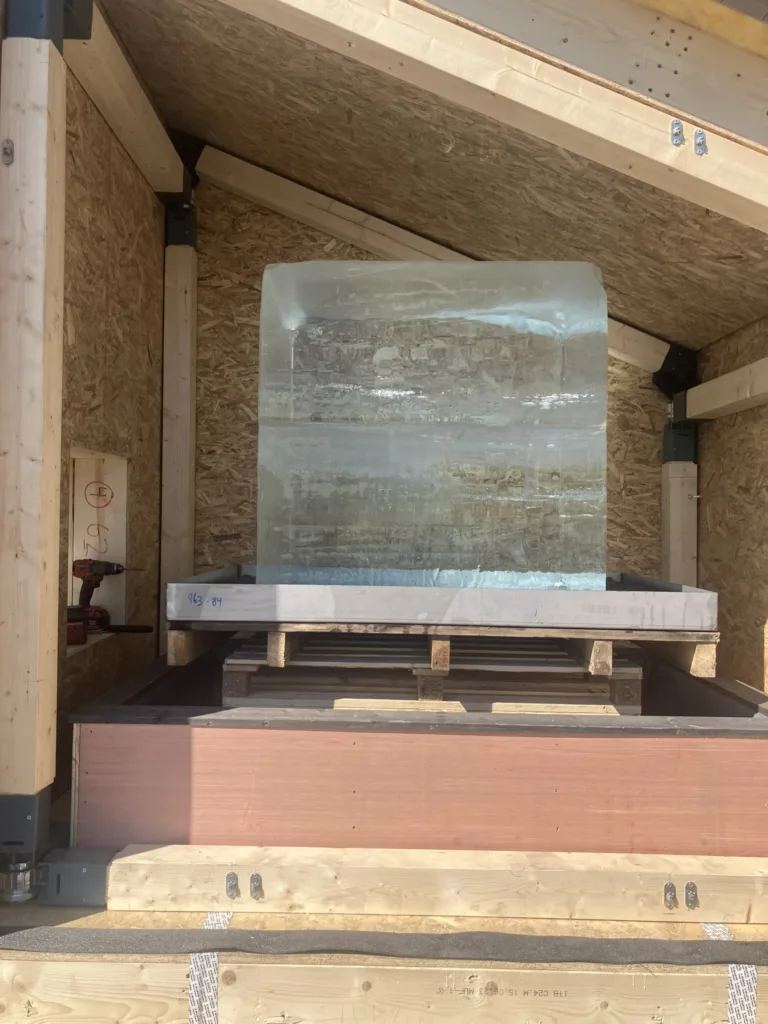
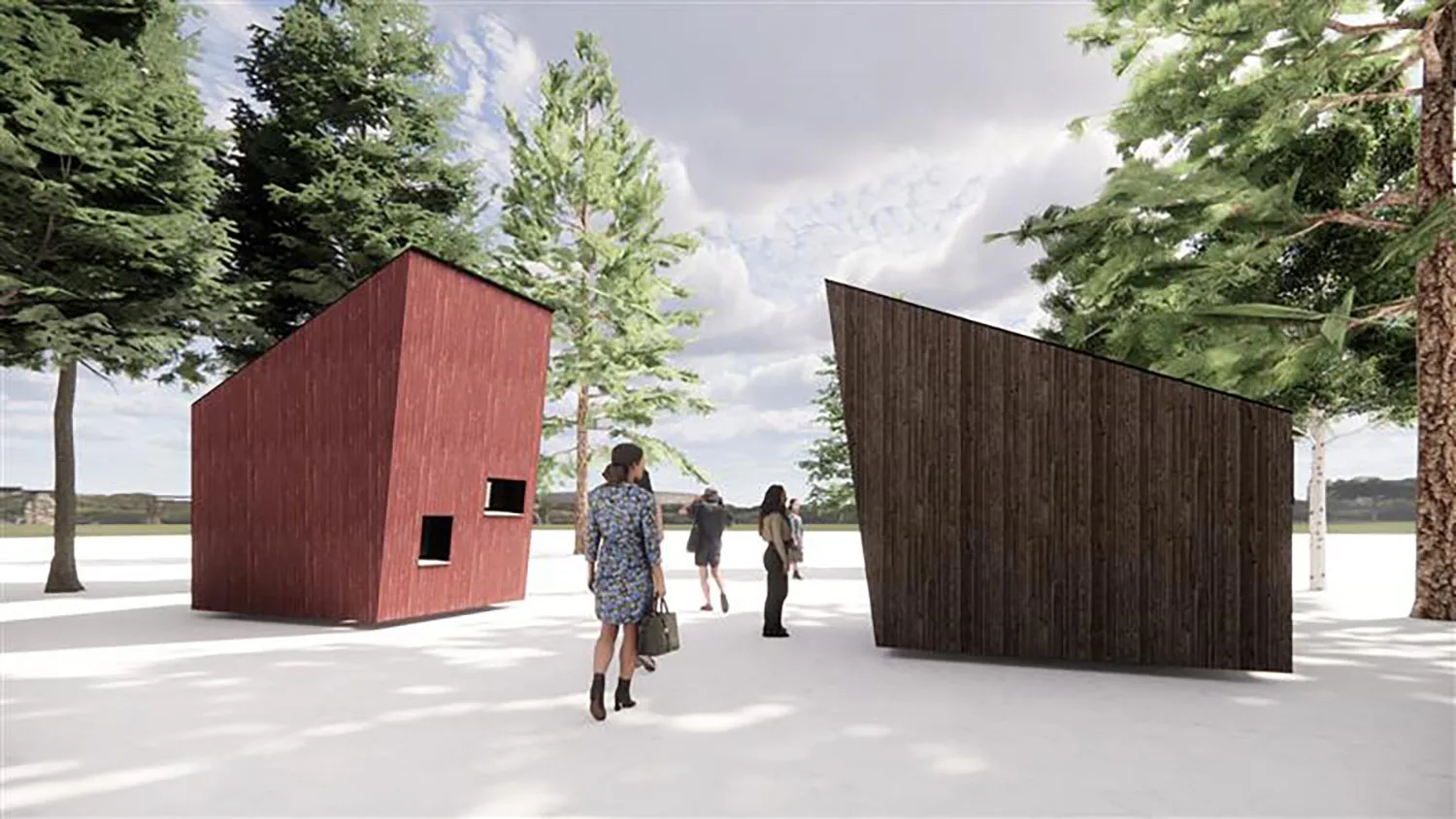
From Brussels to New York
Now comes
IceBox Challenge
to Oslo

2024: Oslo, Norway
2024: Delhi, India
2023: New York, Pratt Institute, USA
2023: Denver, USA
2023: Fort Collins, USA
2023: Louisville, USA
2021: Glasgow, UK
2021: Santiago, Chile
2019: Melbourne, Australia
2018: New York, USA
2018: Los Angeles, USA
2018: Philadelphia, USA
2018: Washington, USA
2018: Pittsburg, USA
2017: Vancouver, Canada
2017: Seattle, USA
2016: Darmstadt, Germany
2009: Brussels, Belgium
2007: Brussels, Belgium
